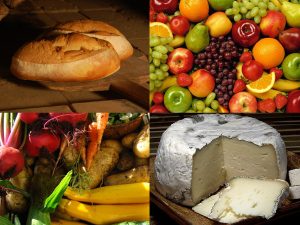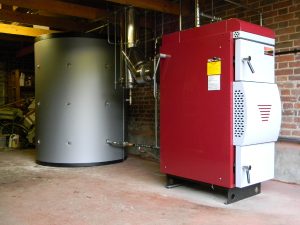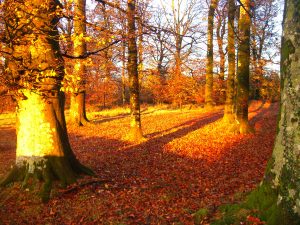The Agroecological Land Initiative is an new organisation founded to advocate and implement agroecological methods in the UK to help secure food sovereignty, energy independence, and environmental regeneration in a way that is financially viable and socially just. We envision the regeneration of both the countryside and rural economies through the creation of co-sufficient community farms rooted in agroecological production. To this end we have adapted a co-operative cohousing model to be applied to low-impact community self-build projects designed specifically to facilitate agroecological land-based livelihoods.
Cohousing
Cohousing communities are set up and run by their members for mutual benefit. Members are consciously committed to living as a community. They share common space facilities, activities like community meals and other amenities such as laundries, heating systems, guest rooms, transport – and developments are designed to encourage social contact and a sense of neighbourhood among members.
Many emerging communities or groups with an interest in creating a cohousing project face the problem that some members have money to invest while others have very little. Entering into to a cohousing scheme, those with money often have concerns that they will lose the value of their investment. On the other hand, those without much money to invest may feel that there will be an imbalance in power with those investors assuming greater decision-making rights with the threat of withdrawing their investment.

Community Equity
We believe we have found a way through these difficulties. We are using an equity membership scheme that will allow for different levels of investment from members while retaining a principle of common ownership. Members have a ‘licence’ with the co-operative and pay a ‘service charge’ that covers the running costs of the community. To have a licence to live in the community members must commit to the full amount of the value of their particular living space, a value determined by the members themselves. This will involve an equity loan equal to the value of the living space, or an equity loan and a commitment to a pay the full amount over a period of time. If some members hold more equity than the value of their living space this equity will be repaid by members who have made a commitment to the full amount of their living space.
Agroecology (1)
We have chosen to identify with the emerging discourse surrounding agroecology because we feel that it provides a scientific basis for alternative forms of agriculture; it has the possibility of bridging the gap between conventional farming and other approaches to farming such as permaculture, organic farming and biodynamics; and we see the potential for this discipline to move towards an integrative study of the ecology of the entire food system encompassing ecological, economic and social dimensions or, more simply, the ecology of our food system.

The Initiative
One of the main obstacles for land-based communities looking to establish self-build projects is the often obstructive panning system in the UK. We want to build upon the pioneering work of other projects that have gone before us and contribute to the process of forging new pathways for communities to overcome this challenge. To this end we are interested in developing a strategy of framing new rural housing developments within the context of local renewable energy targets.
As such we are proposing the application of a biomass production model designed to meet local energy demands through on-site wood torrefaction (2) and processing. Using small scale wood torrefaction reactors we will be able to demonstrate a substantial income for the project as well as the provision of a local fuel supply that has low transport costs, high combustion efficiency, and adaptability to domestic and commercial scale energy production.
We envision a certain percentage of the land’s productive capacity being turned over to short rotation coppice(SRC). We are particularly interested in the possibilities of establishing these SRC systems on marginal land and upland areas incorporating key line design management to improve soil fertility and water catchment.
We are, however, by no means limiting ourselves to this aspect of land management. We are also developing business models for the production of mushrooms, fermented food products, biochar, natural building, perennial agricultural systems application and local food distribution networks.

Get Involved
We are currently looking for additional members and further investment to develop our first project at Red Pig Farm, Llandieilo,Wales. We are particularly keen to find those with a commitment to the food sovereignty (3) movement and experience in agroecological systems management.
Fore more information visit our website at agroreology.co.uk.
1. Agroecology is “the application of ecological concepts and principles to the design and management of sustainable agro-ecosystems” (Gliessman, 1997).
2. Torrefaction is a process used to produce high-grade solid biofuels from various streams of woody biomass. The end product is a stable, homogeneous, high quality biofuel with far greater energy density and calorific value than the original feedstock, providing significant benefits in logistics, handling and storage, as well as opening up a wide range of potential uses.
3. Food sovereignty is defined as “ the right of peoples to healthy and culturally appropriate food produced through ecologically sound and sustainable methods, and their right to define their own food and agriculture systems” (La Via Campesina).










1 Comment
If you’re interested in moving to an existing housing co-operative near Shrewsbury in the West Midlands please contact Crabapple.
We are a thriving housing co-op of 7 adults and 3 teenagers aiming to live as sustainably as possible in our large Georgian house and 20 acres of land. We are seeking new members! We would like the community to be diverse with a mix of ages, genders, cultures and skills. Currently, 5 of us are aged 50+, so we’d particularly like some younger adults to join us! We’re also keen to find a family, ideally with young children. However, anyone is welcome to apply.
We’re looking for practical/resourceful people who are child-friendly and able to commit at least 2 days work per week in areas such as eco-renovating the house and outbuildings, managing our woodland, growing and processing fruit and vegetables, running our community-supported market garden, increasing our sustainability and supporting social/environmental movements through hosting events.
You don’t need capital to join – we are tenants and pay rent. We share communal evening meals which are vegan/vegetarian, and we share food and fuel bills.
If you are interested in finding out more, then please get in touch and we will send you more details about the community and our membership process.
[email protected]
crabapplecommunity.wordpress.com